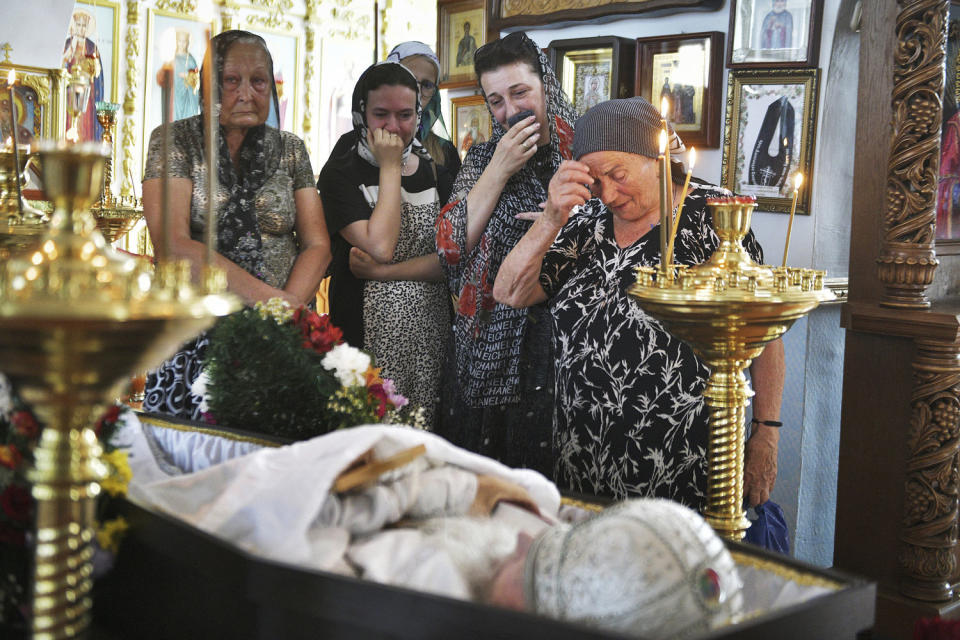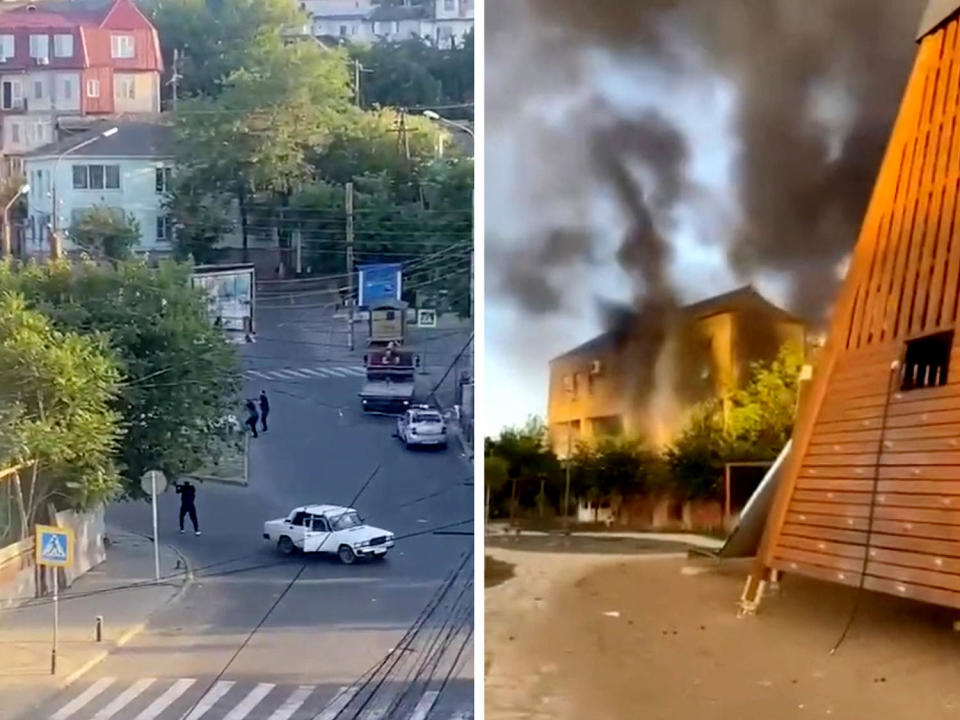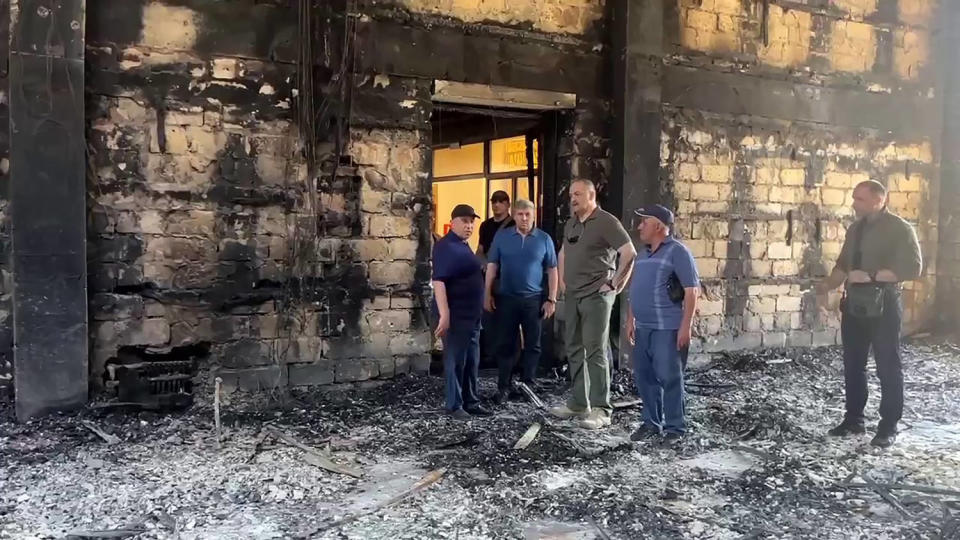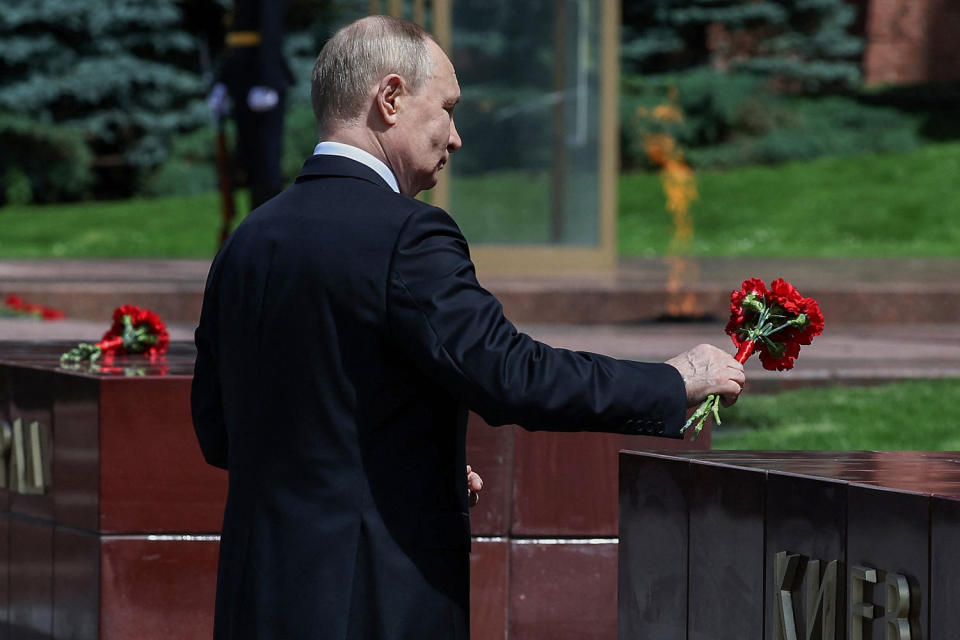16 law enforcement officers, an Orthodox priest and several other civilians were killed in the raid in a predominantly Muslim neighborhood at the Orthodox Christian holy moment of Pentecost, although the Kremlin wanted to downplay the possibility that Islamic militants were behind it.
Its efforts to deflect attention from the potential connection may perhaps hint at the growing vulnerability of President Vladimir Putin, whose attention and resources are entirely focused on the fighting in Ukraine and those who prevent it inside Russia.
Kremlin-linked politicians have suggested without evidence that the attacks were organized by “enemies” outside the country, specifically Ukraine and NATO’s logistical agents, even though Putin himself indirectly addressed the attacks. yes.

It’s the same story that unfolded just a few months ago when armed terrorists killed 145 people at the Moscow-based Crocus Town Hall concert venue, although an affiliate of Islamic Weather claimed responsibility.
Instead of investigating how Russia’s logistical services could have overlooked such a valuable attack, Moscow immediately accused Kiev and its Western allies of helping to organize it. Such allegations reinforce the Kremlin’s societal narrative that the West habitually poses the most important existential threat to Russians’ security.
However, Neil Melvin, director of global security research at Royal United Products & Services, said “two major terrorist attacks occurring simultaneously” would raise questions about whether the war in Ukraine has prevented the Kremlin from knowing what is happening inside Russia. Has disturbed. A receiving tank at the Institute, London.
Melvin said the recent resurgence of violence in Dagestan is a warning to regional balance in the North Caucasus and to Putin’s claim to restore the line there.
The Kremlin’s goal was not always to dismiss stories related to violent Islamism.
Dagestan is a predominantly Muslim region of Russia within the North Caucasus. Extremist violence there increased in the early 2000s following two wars waged by Russian forces in neighboring Chechnya. Those conflicts have allowed Putin to say he has brought comfort and stability to the Windy Pocket and burnished his symbol as a guarantor of Russia’s security.


More recently, however, Dagestan, like other ethnic minority regions, has borne the brunt of Putin’s occasionally unpopular efforts to mobilize men for the war in Ukraine. The pocket also made headlines in October when an anti-Israel mob stormed the airport in Makhachkala, the capital of Dagestan, just weeks after the October 7 attack on a passenger plane from Israel.
Within weeks, the Kremlin has blamed “international terrorism” and “jihadism” for the unprovoked outbreak of violence in Russia’s Caucasus, bringing it on par with Western countries dealing with similar blackmail, according to the study in Kings. Visiting School Master Michael Clarke said. School London. “But since 2022, the Kremlin has worked hard to convey that these attacks are somehow motivated from the outside and more specifically that they lead back to Kiev, no matter how tenuously,” he said. Said.
On Monday, Dagestan’s immediate acting governor Sergei Melikov said he knew who was behind the attacks and what their goals were, but he declined to name any perpetrators, saying only “sleeper cells” controlled the world. ” Were. ,


Hidden and mixed messages have also been a property of legitimate responses to previous terrorist attacks on Russian soil.
Days after the Crocus Town corridor attack in March, Putin said it was carried out by “radical Islamists” but wondered who had directed them. Two weeks after that, he said that Russia would no longer be a target of “Islamic radicals” because it was “a unique example of interreligious accord and unity.”
Harold Chambers, a political analyst focusing on Russia at Indiana College Bloomington, said a denial would imply that “the security services’ distraction from the war in Ukraine following the Crocus City Hall attack was not amended.”
In particular, after Sunday’s attack, Russian surrounding media reported that a local legal, Magomed Omarov, had been removed from his post and expelled from the ruling United Russia party. Those reports claimed that Omarov’s son and nephew took part in the attacks. If the allegations are true, there will be uncomfortable questions for the Kremlin.


“The recent elevation of Dagestan militants indicates that the counterterrorism landscape in the North Caucasus has changed significantly,” Chambers said.
Climate section spokesman Matthew Miller told Newshound on Monday that he had no assessment of who carried out the attack. Three US officials told NBC News that dissident factions of ISIS have publicly taken credit for the attack but that other local extremist groups are also responsible.
Telegram channels linked to the ISIS affiliate that attacked Krokus praised Sunday’s attack by “our brothers from the Caucasus,” but did not claim responsibility.
The Washington-based Institute for Research of Battles argued that the Islamic Weather Team’s North Caucasus region, Vilayet Kavkaz, was likely behind the attack, describing it as “complex and coordinated”.
This newsletter was first published on NBCNews.com
Discover more from news2source
Subscribe to get the latest posts sent to your email.




